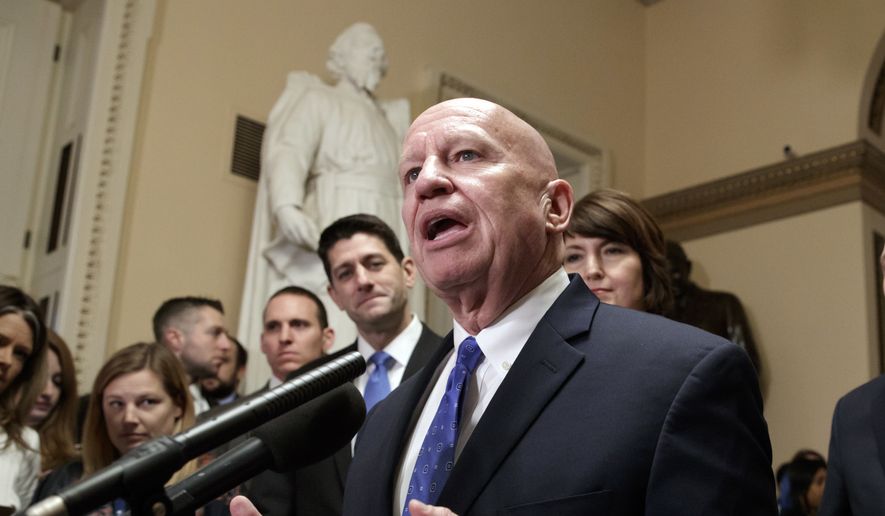The House on Friday voted to permanently extend the individual rate cuts in the GOP’s $1.5 trillion tax cut law as part of Republicans’ “Tax reform 2.0” effort, saying the cuts are needed to keep the economy humming in the future.
“By making the new code permanent for our families and small businesses, the [bill] will keep America’s economy booming and middle-class families growing again,” said Rep. Kevin Brady, the House’s top tax writer.
The vote was 220-191, mostly along party lines, with only a few Democrats backing the bill and about 10 Republicans voting against it.
House Republicans are trying to highlight tax cuts and the booming economy as they prepare to head home to campaign, saying Democrats will seek to roll back the new rates right away if they retake control of the House and/or the Senate.
“You all know the Democrats’ agenda. They talk about raising the taxes. They would reverse the tax cuts that we provided to the American public,” said House Majority Leader Kevin McCarthy earlier this week.
But Democrats said the bill is another giveaway to the wealthy that isn’t paid for, and that it’s part of the GOP’s “starve the beast” strategy to slash federal revenues, then demand cuts to other government programs in order to deal with a rising sea of red ink.
Rep. Richard Neal, the top Democrat on the Ways and Means Committee, called the bill “reckless” and “a cut for the wealthy that leaves behind hard-working families.”
The Joint Committee on Taxation, Congress’s non-partisan tax scorekeeper, estimates that the new bill would cost the government about $545 billion over 10 years, including effects from associated economic growth.
But Republicans say that families and small businesses need the certainty of the new rates just as much as large corporations do. The original tax law permanently lowered the corporate tax rate from 35 percent to 21 percent, but the new individual rates were written to expire after 2025 to comply with budget rules.
The GOP also says that long-term growth will ultimately make up for the initial revenue hit the government takes from the tax cuts.
Some blue-state Republicans opposed both the original tax law and the bill on Friday because of a new $10,000 cap on a state and local tax deduction that disproportionately affects middle-to-upper income earners in high-tax states.
The bill on Friday permanently extends the new cap. Proponents said the old system served to effectively subsidize the high-tax behavior of blue states.
Rep. Peter King, New York Republican, said leadership does understand the objections he and other northeastern Republicans have to the new cap.
“They understand, but they don’t care,” he said.
The House on Thursday also passed two other tax bills aimed at boosting Americans’ retirement savings and incentivizing new businesses.
The legislation almost certainly won’t pass in the Senate, where it would need 60 votes to break a potential filibuster — though the retirement savings bill does include elements of separate legislation being pushed by members of both parties.
Republicans used a fast-track budget tool to muscle through the tax law last year with only GOP votes. But they don’t have that at their disposal for this second round of tax cuts because Congress hasn’t passed a 2019 budget resolution.
• David Sherfinski can be reached at dsherfinski@washingtontimes.com.




Please read our comment policy before commenting.